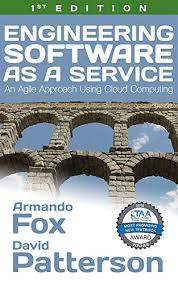White Paper: AI in Software Engineering – Transforming the SDLC and DevOps
Executive Summary
Artificial Intelligence (AI) is revolutionizing software engineering by automating routine tasks, enhancing productivity, and improving the accuracy of decision-making across the Software Development Life Cycle (SDLC) and DevOps processes. This white paper provides a comprehensive examination of how AI is transforming software engineering practices—from requirements analysis and coding to testing, deployment, and monitoring. Additionally, it highlights the roles of IAS-Research.com and KeenComputer.com in empowering organizations with cutting-edge AI solutions for sustainable innovation.
Table of Contents
- Introduction to AI in Software Engineering
- AI Across the Software Development Life Cycle (SDLC)
- Requirements Engineering
- Design & Architecture
- Coding & Implementation
- Testing & Quality Assurance
- Deployment & DevOps
- Maintenance & Monitoring
- DevOps and AI: A Symbiotic Relationship
- Real-World Use Cases
- Challenges and Considerations
- Tools and Technologies
- How IAS-Research.com and KeenComputer.com Can Help
- Conclusion
- References
1. Introduction to AI in Software Engineering
Software engineering is entering a new era fueled by artificial intelligence. AI is not only automating repetitive tasks but also enabling predictive insights, anomaly detection, intelligent recommendations, and continuous learning. This shift is influencing all aspects of software development, helping teams build better software faster and with fewer errors.
2. AI Across the Software Development Life Cycle (SDLC)
2.1 Requirements Engineering
AI-powered natural language processing (NLP) tools can parse stakeholder conversations, documentation, and feedback to generate or refine software requirements. Chatbots, LLMs, and semantic analyzers assist in clarifying ambiguities, detecting inconsistencies, and suggesting functional or non-functional requirements.
2.2 Design & Architecture
Machine learning algorithms support architecture design decisions by recommending optimal patterns based on prior projects, performance goals, or constraints. Generative AI can produce UML diagrams or architectural blueprints from textual specifications.
2.3 Coding & Implementation
AI-driven code generation tools (e.g., GitHub Copilot, Amazon CodeWhisperer) leverage large language models to write boilerplate code, suggest refactorings, detect vulnerabilities, and adhere to coding standards. Reinforcement learning agents are also being developed to auto-correct code in real time.
2.4 Testing & Quality Assurance
AI enhances software testing through:
- Test case generation using input/output analysis
- Test prioritization based on risk or recent changes
- Defect prediction models
- Self-healing automation scripts for UI testing
2.5 Deployment & DevOps
AI algorithms optimize CI/CD pipelines, predict build failures, and auto-scale cloud deployments based on usage patterns. AIOps platforms analyze logs, metrics, and traces to proactively identify anomalies.
2.6 Maintenance & Monitoring
Predictive maintenance models forecast component failures or performance degradation. AI chatbots assist in Level-1 support by resolving frequent queries and routing complex tickets intelligently.
3. DevOps and AI: A Symbiotic Relationship
DevOps emphasizes continuous integration, delivery, and monitoring. AI complements this by enabling:
- Continuous Feedback: AI systems analyze telemetry data to recommend improvements.
- Security Monitoring: AI-driven security tools detect intrusion attempts and vulnerabilities in real-time.
- Automated Rollbacks: Intelligent agents determine rollback strategies after failed deployments.
4. Real-World Use Cases
- eCommerce: Intelligent personalization engines suggest products and offers. AI ensures uptime with predictive performance monitoring.
- Banking: AI helps with fraud detection, testing automation, and compliance tracking.
- Healthcare: AI automates compliance and error detection in EHR (Electronic Health Records) systems.
- IoT and Embedded Systems: Edge AI performs anomaly detection, firmware updates, and energy optimization.
- Software Consultancies: AI accelerates delivery timelines and improves customer satisfaction with intelligent QA and chatbot integration.
5. Challenges and Considerations
- Data Privacy & Ethics: Training AI models requires sensitive project data.
- Model Explainability: Black-box models make debugging difficult.
- Tool Integration: Not all tools integrate well with legacy systems.
- Skill Gaps: Engineers need training to effectively use AI tools.
6. Tools and Technologies
- Code Generation: GitHub Copilot, TabNine, Amazon CodeWhisperer
- Testing Automation: Test.AI, Applitools, Functionize
- CI/CD & DevOps: Jenkins with ML plugins, Azure DevOps AI, Harness.io
- Monitoring & AIOps: Datadog, New Relic, Splunk, Moogsoft
- Requirement Analysis: IBM Watson NLP, Microsoft Azure Language Studio
7. How IAS-Research.com and KeenComputer.com Can Help
IAS-Research.com
IAS-Research.com provides advanced R&D and applied engineering services in AI, machine learning, NLP, and systems design. Their contributions to AI in software engineering include:
- Custom LLM pipelines for code understanding and requirements modeling
- AI-enhanced software verification frameworks for safety-critical systems
- Integration of AI in DevOps for smart monitoring and auto-remediation
- AI-based modeling of user behavior to improve UX/UI design
KeenComputer.com
KeenComputer.com offers end-to-end software solutions including development, deployment, and managed services. Their strengths lie in:
- Implementing AI-driven coding and testing tools for SMEs
- Customizing DevOps workflows to include AI for faster release cycles
- Training teams on best practices in AI-augmented software engineering
- Building scalable, intelligent CMS and eCommerce platforms with AI analytics
By partnering with IAS-Research.com and KeenComputer.com, organizations can:
- Accelerate innovation in product development
- Reduce time-to-market with intelligent automation
- Improve code quality and maintainability
- Enhance customer experience using AI-driven insights
8. Conclusion
AI is no longer a futuristic option in software engineering; it is becoming the norm. From automating tasks to augmenting decisions, AI enhances all phases of SDLC and DevOps. Companies that embrace AI will outpace competitors in agility, quality, and innovation. IAS-Research.com and KeenComputer.com offer the expertise, tools, and frameworks necessary to lead this transformation in your organization.
9. References
- IEEE Software Engineering Body of Knowledge (SWEBOK)
- GitHub Copilot Documentation
- “Artificial Intelligence: A Modern Approach” by Stuart Russell and Peter Norvig
- McKinsey Report on AI in Software Engineering
- ThoughtWorks Technology Radar
- IBM AI for DevOps White Paper
- Microsoft Azure AI Documentation



